
Karma Yoga by Swami Vivekananda is a book that talks on Karma. The book tells that all of our actions have reactions. The trick is to learn how to work in a way that doesn't cause more misery. To learn the trick, keep reading.
Today we will talk about the book “Karma Yoga,” which tells the thoughts of Swami Vivekananda on Karma.
The real name of Swami Vivekananda was Narendranath Datta. He was born in a wealthy and religious Bengali family in Kolkata on January 12, 1863. He completed his studies at Presidency College. He was not only a great saint but also a patriot, a great time, a philosopher, and a great writer. He died while meditating on July 4 , 1902.
Swamiji was very dedicated to the matter of ‘Karma’. He always said, “One needs to be practical to deal with any work. Too much theory has destroyed the whole nation.”
In Karma Yoga, he has presented ‘Karma’ as mental discipline and guidance for increasing knowledge. Describing the facts of Bhagwat Gita in short , Swamiji has defined the essence of ‘Karma’ and its importance in life.
Today we will talk about the thoughts of that great man of knowledge, soul, and inspiration for the ideal of youth.
So, this article, we are going to summarize the book for you, so if you don’t have time to read the whole book, read the article carefully, and absorb it’s wisdom.
Who are we? The power to be whatever we want to be. It is in us. If our present form is the result of our past actions, then indeed, by our current efforts, we can also create our future form. So we should learn to act.

What Is Karma Yoga?
Karma Yoga is often called the yoga of cause and effect or the yoga of sowing and reaping, but it is the yoga of work. Any action, any thought, by doing something is called karma. Thus, the law of karma means to act or to take action.
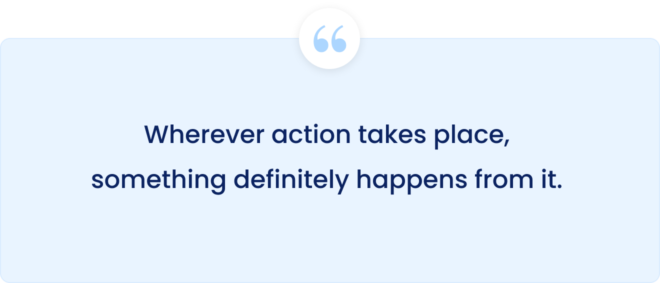
Because wherever the action takes place, something happens from it. This truth cannot be denied, and this law of karma is valid throughout the Universe.
Karma Yoga is a mental discipline that asks a person to serve the people by fulfilling his work through knowledge. We learn about the secret of working , the way of working, and the power to work through Karma Yoga.
We learn how to use everything in this world. Karma Yoga tells us that, to find a way out of the world’s shackles, we must understand and adopt it slowly and surely.
Swami Vivekananda says that karma is derived from the Sanskrit word ‘ kri ‘, which means to do – to act.
Technically, the word also means to do something. But in Karma Yoga, we have to take desired results from the word karma itself. Therefore, all actions are karma, from the most basic tasks, such as brushing teeth, to the highest altitudes, such as meditation.
Karma Yoga means all those human activities done with focus, skill, and finesse . And the way of salvation in life is to perform one’s duties without the greed of getting anything. So, in the Bhagavad Gita, Shri Krishna advises Arjuna (all mankind) to do his work honestly and with the best skill, without any greed or expectation of rewards.
So let’s talk about the valuable thoughts about Swami Vivekananda and the similar karma of the Bhagavad Gita.
Chapter 1: Swamiji’s Thoughts on Karma and Character
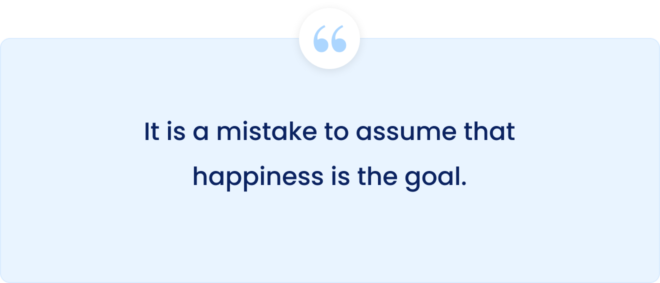
Swamiji says it is a mistake to assume that happiness is the goal. Our miseries in the world are because human beings try to make happiness the best condition without understanding.
But after some time, they find that it is not happiness, but knowledge, towards which they are heading, which makes them happy. And that pleasure and pain are great teachers.
As happiness and sorrow pass through life, they leave different impressions, and the result of these total impressions is what is called the “character” of the human being.
If you look at the character of any human being, it is a combination of different things. The sum of the inclinations of mind or way of thinking; You will find that both sadness and happiness play an essential role in creating character.
Swamiji says that there is an equal share of good and evil in the making of character, and in some cases, sadness is a better teacher than happiness. When knowing about the people, it will be found that suffering taught them more than happiness; poverty taught them more than wealth.
Now, here again, the thing is that this knowledge is again inside the human being. No knowledge comes from outside. It’s all inside. So whatever innovation a person makes, it already exists.
When we say that Newton discovered gravity, what we need to think here is, was he sitting in the corner waiting for him? Or, it came to his mind, and he worked with time to find out.
All the knowledge the world has received so far comes from the mind. The never-ending library of the universe is in your mind. The outside world is just a suggestion or opportunity, which inspires you to know about your mind, but the purpose of your learning is always to learn more and more about your mind.
The fall of an apple gave Newton the idea of gravity, and he began to learn about his mind. He began to link all the previous links of thought in his mind and discovered a new connection between them, which we call the law of gravitation.
If we really look, gravity was not in the apple, the center of the earth, or anything else . That is under knowledge, spirituality, and in the human mind.
In many cases, it is not discovered but remains covered. When the layer of ignorance over it is gradually removed, the process of learning thus progresses through the process of learning and revealing the truth. The person from whom this veil is released is more knowledgeable. But the person on whom this veil is lying is ignorant.
Like fire in a piece of shining stone, wisdom exists in the mind. The idea is the process that brings it out. So with all our feelings and actions, our tears and our smiles, our joys and our sorrows, our cries and our laughs, our curses and our blessings, our praise and our lack, we can find each of them.
Every mental and physical trouble which is given to oneself to gain power and knowledge is called karma. If we use this word in a meaningful sense, then in a way, we are doing all work or karma.
Swamiji says I am talking to you: this is karma. You are listening: this is karma. We breathe: that is karma. Everything we do, whether in body or mind, is karma, which leaves its mark on us.
Some tasks are small in the beginning and become very big at once. For example, if we stand on the shore of the sea and hear the waves hitting the coast, we feel what a great noise it is.
Still, by watching and listening carefully, we know that a wave is made up of millions of minute waves, and each one of them is making noise, yet we can’t catch it.
Similarly, by continuously doing many small things together , we become so powerful that we can do something impossible in the present or future through them.
Similarly, every beat of the heart is work; some work which we feel, and they become fixed for us. They are the sum of many small things simultaneously.
So, if you want to decide whether a person is good or bad by looking at his character, then don’t just look at his great visible values but both aspects because every fool can become a hero at some point.
Watch a man doing his most ordinary things. Because these are the things that will tell you about the true character of a great human being.
Excellent opportunities also inspire human beings to become great in some way or another. Still, in reality, they are great human beings whose character is always great, that is to say, who are honest in all their appearance and inner work, wherever they may be.
We are what our thinking has made us. So be mindful of what you think. Words are necessary. Whatever you believe, you are that. If you feel weak, you will be weak.
If you consider yourself powerful, you will be powerful. If you think yourself inferior, you will be of use to someone. If you consider yourself holy, you will be blessed.
To be successful, you must have tremendous determination and tremendous willpower. So whatever people want to say, stick to your faith and have faith that the world will be at your feet. Vivekananda says many people say, ‘Trust this partner or that partner’, but I say, ‘Believe yourself first’.
If you are pure and robust, you are a man equal to the world.
Chapter 2: Everyone Is Great In His Place
Teaching this principle of Karma, Swamiji says that a part of the principle of Karma Yoga is activity. Duty is according to the activity. What is not a duty to one is a duty to another. At the same time, it is also incorrect to think that this duty is small and the other is high.
If a man takes sannyasa from the world to worship God, he should not think that those who live in the world and work for the good of the world are not worshiping God. Nor those who live in the world, the wife and the children should think of them, that those who renounce the world are lowly or vagabonds. Because each one has his place and value in his life and people’s life, which one can fulfill only through one’s work.
Chapter 3: The Secret of Karma
Helping others with the body, taking away the needs of their body, is indeed great, but the more significant such help is, the greater it is, and the farther the service is given, the greater the benefit to the other.
Still, if, in some way, one’s desires can be taken away forever, that is the most significant help that can be given.
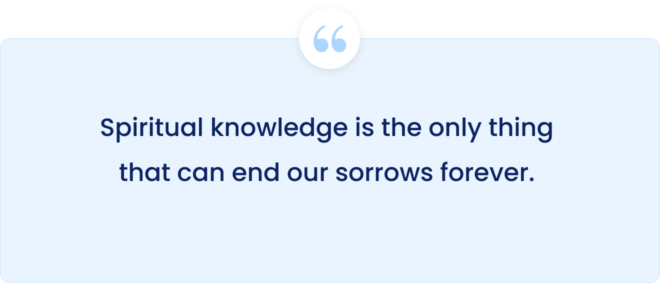
And spiritual knowledge is the only thing that can end our sorrows forever. Any other knowledge fulfills our needs only briefly. With the knowledge of the soul, the trouble or negative power of always lacking in life gets destroyed forever. So spiritually helping a person is the most significant help that can be given to him.
Those who give spiritual knowledge to people will be of most important benefit to mankind, and thus, we always find that they were and are the most influential people. Who help people with their spiritual needs because spiritual life is the base of all our activities. A spiritually strong and healthy person, if he so desires, will be vital in every respect.
Without spiritual power in a human being, even physical needs cannot be fulfilled. Mental help comes before the spiritual. The gift of knowledge is far better than food and clothing.
It is more than giving life to man because man’s real life is from knowledge. Ignorance is death; knowledge is life. Life is of little value if it is life in the darkness of ignorance. The next stage comes to help a man with grace.
Therefore, when considering the question of helping others, we should always try not to think that physical help is the only help that can be given.
It is not only the last but also the least because it cannot bring permanent satisfaction in one’s life. One’s misery can only end when satisfied with all his desires. Then hunger will not make one sad. No trouble. No sorrow can shake. So, the help that makes us spiritually strong is the highest, followed by mental help and then physical help.
Chapter 4: What is Duty?
When reading about Karma Yoga, it is essential to know what duty is. If I want to do something, I must first understand that it is my duty, and only I can do it. Again the idea of duty is different in different countries.
Muslims say that what is written in their book, the Qur’an, is their duty. Hindus say that what is in the Vedas is their duty, and Christians say that what is in the Bible is their duty.
In this way, we find that there are different thinking about duty, various situations in life, different historical works, and different according to foreign nations. The word “duty”, true to all and every other word, is impossible to define clearly. We can get an idea of it only by knowing its practical operations and results.
When certain things are in front of us, we have a natural or learned way to act in a fixed manner for them. When this method comes, the mind starts thinking about that situation. Sometimes it feels good to work in a particular way under given conditions. Sometimes, it feels wrong to act in the same way, even in similar situations.
In the last century, India had infamous gangs of robbers called thugs. They considered it their duty to kill a human being, and they did what they could and took away his wealth. The more people they killed, the better they thought they were.
Generally, if a person goes to the street and shoots another person, he can be insulted, thinking he has done wrong. But if that same man, as a soldier in his regiment, kills not one but twenty, he will be happy and think he has done his duty very well.

So we see that not just work defines a duty. Thus it is entirely impossible to give a precise definition of duty. Yet the personal duty is that any work that leads us to God is a good deed, and it is our duty. Any work that brings us down is wrong and not our duty.
From an individual point of view, we can see that in some work, we have the power to exalt and respect, while in other jobs, we tend to humiliate and do wrong to us.
However, there is only one idea of duty which is regarded as the unalterable truth by all humanity, all ages and religions and nations, and which is stated as: “Any living being It is a virtue not to injure someone, it is a sin to hurt any living being.”
Chapter 5: We Help Ourselves, Not The World
Our duty is to help others and do good to the world. But we should do good to ourselves. Why should we do that?
To help the world, but actually to help ourselves. Of course, we should always try to help the world; that should be our most significant motive, but if we think well, we find that the world does not need our help. This world is not made because you or I come and help it.
We should do well because the desire to do good is our most significant driving force. God gives us if we always know that helping others is a special right.
We can stand in some high place. So don’t say, “Here, my poor man,” with five cents in your hand, but be grateful that he is the poor man so that you can help yourself by gifting him, for it is not the taker who is blessed but the giver.
So be grateful that you have been given the power and permission to do good to your people in the world and to use the power of kindness, and by thinking and acting in this way, you become holy and perfect, that is, the person who fulfills all desires.
This is the only way we can become perfect. We do not owe even a cent to any beggar we have helped; Rather, we are all indebted to him because he has permitted us to give our charity to himself.
It is entirely wrong to think that we have done or can do good to the world or to feel that we have helped more such people. Because it is a stupid idea, and all foolish thoughts bring misery. We have helped a man and hope that he will thank us, and if he does not, sorrow comes to us.
Why should we expect anything in return for what we do?

Be grateful to the man you help; think of him as a God. Isn’t it a great honor to be allowed to worship God by helping others around you?
If we were to be genuinely unattached , that is, wanting something without return, we should avoid all this pain of extravagant expectation and happily keep doing good in the world. And what is done without hope will never hurt. So the world will go on with its joys and sorrows for eternity.
Chapter 6: Freedom
The high-level types of people quietly collect true and noble ideas, and others – Buddha and Christ – move from place to place and preach and work for them. In Gautam Buddha’s life, he constantly says he is the twenty-fifth Buddha. The twenty-four before him are unknown to history, although the Buddha knew that history would be built on the foundations laid by him.
The most incredible people are quiet, silent, and unaware. They are the people who really know the power of thought, and they are sure that even if they go into a cave and close the door and think only five true thoughts and then leave, these five thoughts of theirs will live on for eternity.
Such thoughts will enter the mountains, cross the oceans, and spread worldwide. They will penetrate deep into the human heart and mind and elevate men and women who give them practical guidance to do well in human life. To be so active and to fight, to work, to struggle, to preach, and to do good are very close to God; as they say, he has come for humanity here on the ground.
There is still some ignorance left in those who actively take action, however good they may be. On thinking and finding that there are still some shortcomings left in our knowledge, only we can work.
There is no other duty for those whose natural desires are absorbed in the soul, whose passions are confined, and who are permanently attached to the soul. Such people are indeed the tallest in the human race.
While doing so much work, we should never think we can help, even with the most minor thing in this Universe. The truth is we can’t. So instead, we only allow ourselves in this practice ground of the world.
If we act with this thought and always remember that our present opportunity to work like this is a special right given to us, then we will never get attached to anything.
Millions of people like you and me think we are the great people in the world. But we all die, and in five minutes, the world forgets us. But the life of God is infinite.
By his command, the wind blows, the sun shines, the earth lives, and death comes. He is in all and everything. We can only worship him.
Therefore, leave all the fruits of the work; do good to yourself. Only then will the fulfillment come. In this way, the shackles of the heart will be broken, and we will feel completely free. This liberation is the goal of Karma Yoga.
So, friends, this is Swami Vivekananda’s thoughts on Karma. We hope you learned many essential things about Karma. Now adopt them in your life, and while improving the quality of your deeds, keep moving towards a good life.
Finally, if you feel this summary can help others, please share it with them. We will meet soon with even more improved summaries .
Karma Yoga Book Review
“Karma Yoga” by Swami Vivekananda is a profound spiritual book that explores the path of selfless action.
Vivekananda eloquently explains the concept of Karma Yoga and its relevance in contemporary life. He emphasizes the transformative power of selfless service and how it can lead to spiritual growth and realization.
The book offers practical guidance on integrating selflessness into everyday actions and highlights the importance of detachment and surrender to a higher purpose. With its blend of ancient wisdom and modern relevance, “Karma Yoga” provides valuable insights for those seeking a fulfilling and purposeful life.
Similar Books

Creative Visualization

The Universe Has Your Back
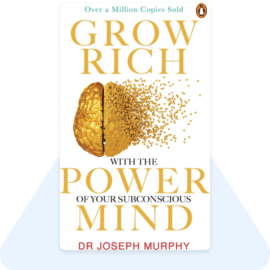
Grow Rich With The Power Of Your Subconscious Mind
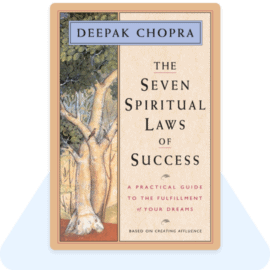
The Seven Spiritual Laws of Success

Autobiography of a Yogi

The Power of Positive Thinking
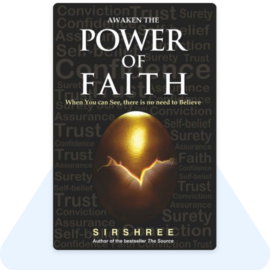
Awaken The Power Of Faith
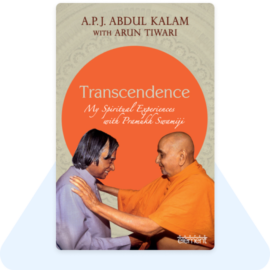
Transcendence: My Spiritual Experiences with Pramukh Swamiji

Good Vibes Good Life

10% Happier
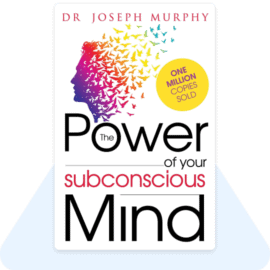
The Power of Your Subconscious Mind
1 thought on “karma yoga”.
Swamiji says Everything we do, whether in body or mind, is karma, which leaves its mark on us. The never-ending library of the universe is in your mind. We are what our thinking has made us. So be mindful of what you think. Words are necessary. Whatever you believe, you are that.
Ignorance is death; knowledge is life.
Leave all the fruits of the work; do good to yourself.
Leave a Comment Cancel reply
Save my name, email, and website in this browser for the next time I comment.
Join Our Free Newsletter and never miss latest book summaries!
- Privacy Policy
- Terms & Conditions
- Affiliate Disclosure
The Thinking Pot
Listen. think. contemplate., book review: karma yoga of swami vivekananda.
Why I chose this book:
As a part of the class on Human Values and Technology at IIT Delhi, we had already discussed about the importance of adopting a value system that is not fully materialistic. In modern times, adoption of such materialistic viewpoint into our systems has lead to a lot of issues which have left the modern world struggling to find a solution. However, I also wished to explore into the two of the following:
- What really would a non-materialistic pursuit for life be?
- How to mould ourselves to be able to pursue such a life?
Being born in a Hindu family and having read briefly about what the Hindu viewpoint of life says, I was looking for a work that could connect the ages old continuous thread of these ideas to the modern context as well. Upon a little exploration I felt that reading Swami Vivekananda would be an ideal option for that and picked up the first volume of his complete works.
Chapters Read:
I read two parts of the book. However, given the limit of this document, I would prefer to discuss only Karma Yoga.
- Read All 8 Chapters in this part (about 75 pages)
- Read first 7 Chapters till ‘Control of the Psychic Prana’ (about 40 pages)
Brief Summary and Comments on the Chapters read:
Karma Yoga:
- The first chapter titled ‘Karma and its Effect on Character’ talks about how our actions shape our nature, with each action that we do, leaving an imprint on our character. Swami Vivekananda emphasizes the importance of character in making a person what he is. This way, every man through his actions shapes himself into what he is and also shapes his destiny. He even points out that if we were to judge a person, looking at his great performances would not be apt because even a fool can sometimes achieve great feats given the circumstances favour him. One should go about observing how the person goes about doing his daily actions. This tells what a man really is.
- In the second Chapter titled ‘Each is Great in his Own Place’ he explains it beautifully using the story of a king and a Sanyasi where the king asks, “Who is greater? One who leaves everything personal and becomes a Sanyasi for a higher goal or the one who stays within the society and becomes an ideal householder?”
- In the next chapter he talks about Samskaras (or Impressions) where he says that every thought rising in the mind (i.e. every action of the mind) is bound to leave an impression on us with a future chance of that impression giving rise to a similar act of thought. A person is nothing but the total sums of the Samskaras that are piled up in his mind. However, these impressions give rise to attachment in us towards their content. In other words, we tend to attach ourselves to the actions of that Samskara. For example, a person may meet many loving people who would praise him but if he meets someone with hate and who abuses him, the memory of that particular person will keep on pestering his mind. This is due to the deeper impression left over by that one incident.
- Next he discusses about how one can go about doing actions and still minimize the attachment that the Samskaras of these actions give rise to. He gois on to say that we should work unattached in the world and not let the ripple of the actions affect the mind. In other words, we should aim to reach a stage where are the master of our mind and the mind is our slave, not the other way round. The recipe for achieving this, he says, is to do selfless acts incessantly without a worry for the reward.
- In the next chapter “What is Duty?”, he says that a person should never be judged on the nature of his duties but the way and the attitude in which he does his duty. Because a duty is not defined by the act it entails. A great act of duty is defined by the amount of selflessness with which the act of duty was done.
- The next chapter “We Help Ourselves, not the World”, was the one that I found the most interesting. A very unique concept of complete selflessness was introduced in a very elaborate manner. Swami Vivekananda says that we never help anyone by doing an act of service for others, but we only help ourselves. It is us who owe to the world and not the other way. To quote him, “You need not worry and spend sleepless nights thinking about what would happen to the world, it will go on without you the way it has been.” He equates the world to a huge moral gymnasium where we have to practice and become stronger.
- In the further chapters, he explains the concepts of Pravritti (revolving towards) and Nivritti (revolving away). He says that it is our tendency as humans to be egoistic and self-centered. In other words, sticking to the idea of ‘me and mine’ is our Pravritti, while the ideas of morality, religion and being selfless is Nivritti. Also, he adds that we can not do good actions which come flawlessly without any consequences which may be perceived as evil and the way to go is to do actions unattached, as suggested by the Bhagavad Gita.
Further Comments:
As I read the book, I was able observe that a lot of the what the book says resonates with what has been discussed in the class till now. The book is very important and seemed to be a like a practical guide for someone looking for living meaningfully. I have added some more comments below:
Reason to do selfless acts : In modern times, particularly our generation when the consumerism and materialism are on a high, living selflessly is very often questioned to its very basis and many a times it is even marked as an old-fashioned, impractical way of thinking. Leaving the case of a particular act aside, when it comes to making the way of our life as selfless, the first question that comes to one’s mind (even in my mind) is that Why in the first place should I live selflessly? The first answer that is given is that, although it may seem harsh at first stages, it would give us a longer lasting happiness than selfish acts would. However after reading the book, I am able to relate to the basis of selflessness to a deeper level which I would attempt to articulate in the next few lines.
When Swami Vivekananda talks about avoiding the attachment due to the impressions of our actions while still being able to act ceaselessly, he says that the way to do that is to be able to make ourselves the masters of our minds, because it is due to the tendencies of the mind that we are lead to being attached to the acts. And the way to master the mind, among many other ways, is to do selfless acts (or live selflessly). Therefore, living selflessly for being happy would work because happiness will be followed by true freedom and true freedom comes if we are not in control by our unconscious faculties. Therefore, to be able to control the mind (or in other words, to be able to stay away from the causal chain of attachments) is a considerably big step towards being happy. And selfless acts help us doing that. The deduction of acting selflessly to being happy breaks into acting selflessly to avoiding causal attachments to being happy.
If we were to look for evidence to this, I can very confidently say from my experience that whenever we act selflessly we never regret it. We have never regretted a selfless act ever done in our lives. This is quite an indicator of the fact that selfless acts make us happy in the long run. On the other hand, selfish acts have always proved to be the acts of a slave i.e. they have always lead to enslavement by the mind in form or the other. Those people, both in present and in history, who act selfishly were never at peace, always unsatisfied looking to gather happiness.
Are self-abnegated men ‘Highest’ ? : At one point in the book, he says that men who are free from attachments and are able to control the mind and have completely inculcated selflessness into all aspects of their life and domains of their existence, are the highest men. I always doubted this, not in terms of the respect we give to them, neither in terms of the greater scale of appreciation and importance for the work they do. But only in terms of the terminology used. Is it correct to say that they are the highest form of men, or would it be better if we say that they are more evolved than anyone else? Because the pursuit towards complete self-abnegation is the aim of the human life (in my point of view), and each step taken towards that is a step in the evolution of our lives. So to say that more evolved means higher, seems to me a bit inconsistent intuitively.
Eat to Live and Don’t Live to Eat: We have already discussed this a lot of times in the class that all the material systems and objects are for facilitating our lives and its goals but not the goals of our lives themselves. We often mistake (again due to our inherent tendencies which have not been overcome yet) it to be the other way. Almost all of the miseries and dissatisfaction about life comes from this mis-identification in some form or the other. However, when we think about the society and our personal experiences, I think this confusion is bound to prevail in the society and in us unless it is washed away by what is correct. In other words, only if we realize by ourselves or are exposed to a bigger goal in our lives, we’d be able to erase this confusion. Till then we would keep on wandering here and there, caught up between the ups and downs in the life.
I strongly think that this exposure of realization of the bigger goals in life should be brought about by using means that are relevant in today’s context. From personal perspective, I think I would go about trying incessantly gaining exposure and strengthening my clarities and capabilities towards a bigger life goal. This may include reading works of people in the past (like the one that I just read), interacting with people who are already experienced (or more evolved than us) in this domain, practice trying out things at various platforms. For fulfilling these three objectives, the campus group AINA has played an important role in my life apart from my parents and family. The second is fulfilled for me by my association with AINA where I got to meet many social reformers on the rural exposure trips across India that AINA conducts. Apart from that, a mentoring by insightful seniors in the group has played a crucial role. The third thing about practicing has been fulfilled by group activities that are conducted in AINA where volunteers get their hands on conducting and managing various diverse activities ranging from the group discussions to slum teaching and even team-building.
Share this:
Philosophy , Reviews

Leave a comment Cancel reply
Blog at WordPress.com.

- Already have a WordPress.com account? Log in now.
- Subscribe Subscribed
- Copy shortlink
- Report this content
- View post in Reader
- Manage subscriptions
- Collapse this bar
Ask the publishers to restore access to 500,000+ books.
Internet Archive Audio

- Grateful Dead
- Old Time Radio
- 78 RPMs and Cylinder Recordings
- Audio Books & Poetry
- Computers, Technology and Science
- Music, Arts & Culture
- News & Public Affairs
- Spirituality & Religion
- Radio News Archive

- Flickr Commons
- Occupy Wall Street Flickr
- NASA Images
- Solar System Collection
- Ames Research Center

- All Software
- Old School Emulation
- MS-DOS Games
- Historical Software
- Classic PC Games
- Software Library
- Kodi Archive and Support File
- Vintage Software
- CD-ROM Software
- CD-ROM Software Library
- Software Sites
- Tucows Software Library
- Shareware CD-ROMs
- Software Capsules Compilation
- CD-ROM Images
- ZX Spectrum
- DOOM Level CD

- Smithsonian Libraries
- FEDLINK (US)
- Lincoln Collection
- American Libraries
- Canadian Libraries
- Universal Library
- Project Gutenberg
- Children's Library
- Biodiversity Heritage Library
- Books by Language
- Additional Collections

- Prelinger Archives
- Democracy Now!
- Occupy Wall Street
- TV NSA Clip Library
- Animation & Cartoons
- Arts & Music
- Computers & Technology
- Cultural & Academic Films
- Ephemeral Films
- Sports Videos
- Videogame Videos
- Youth Media
Search the history of over 916 billion web pages on the Internet.
Mobile Apps
- Wayback Machine (iOS)
- Wayback Machine (Android)
Browser Extensions
Archive-it subscription.
- Explore the Collections
- Build Collections
Save Page Now
Capture a web page as it appears now for use as a trusted citation in the future.
Please enter a valid web address
- Donate Donate icon An illustration of a heart shape
Karma Yoga By Swami Vivekananda
Bookreader item preview, share or embed this item, flag this item for.
- Graphic Violence
- Explicit Sexual Content
- Hate Speech
- Misinformation/Disinformation
- Marketing/Phishing/Advertising
- Misleading/Inaccurate/Missing Metadata
comment Reviews
4,238 Views
2 Favorites
DOWNLOAD OPTIONS
For users with print-disabilities
IN COLLECTIONS
Uploaded by vivekavani on January 10, 2021
SIMILAR ITEMS (based on metadata)

Recently Visited
Top Categories
Children's Books
Discover Diverse Voices
More Categories
All Categories
New & Trending
Deals & Rewards
Best Sellers
From Our Editors
Memberships
Communities
- Religion & Spirituality

Amazon Prime Free Trial
FREE Delivery is available to Prime members. To join, select "Try Amazon Prime and start saving today with FREE Delivery" below the Add to Cart button and confirm your Prime free trial.
- Cardmembers earn 5% Back at Amazon.com with a Prime Credit Card.
- Unlimited FREE Prime delivery
- Streaming of thousands of movies and TV shows with limited ads on Prime Video.
- A Kindle book to borrow for free each month - with no due dates
- Listen to over 2 million songs and hundreds of playlists
Important: Your credit card will NOT be charged when you start your free trial or if you cancel during the trial period. If you're happy with Amazon Prime, do nothing. At the end of the free trial, your membership will automatically upgrade to a monthly membership.
Return this item for free
We offer easy, convenient returns with at least one free return option: no shipping charges. All returns must comply with our returns policy.
- Go to your orders and start the return
- Select your preferred free shipping option
- Drop off and leave!

Download the free Kindle app and start reading Kindle books instantly on your smartphone, tablet, or computer - no Kindle device required .
Read instantly on your browser with Kindle for Web.
Using your mobile phone camera - scan the code below and download the Kindle app.

Image Unavailable

- To view this video download Flash Player

Follow the author

Karma Yoga: the Yoga of Action Paperback – June 14, 1999
Purchase options and add-ons.
- Print length 131 pages
- Language English
- Publisher Vedanta Press - Advaita Ashrama
- Publication date June 14, 1999
- Dimensions 4 x 0.25 x 6 inches
- ISBN-10 8185301891
- ISBN-13 978-8185301891
- See all details

Frequently bought together

Customers who viewed this item also viewed

Editorial Reviews
From the author, about the author, excerpt. © reprinted by permission. all rights reserved..
The sum total of these impressions in him will create the strong motive power for doing bad actions. He will be like a machine in the hand of his impressions, and they will force him to do evil. Similarly, if a man thinks good thoughts and does good works, the sum total of these impressions will be good; and they, in a similar manner, will force him to do good even in spite of himself. When a man has done so much good work and thought so many good thoughts that there is an irresistible tendency in him to do good, in spite of himself and even if he wishes to do evil, his mind, as the sum total of his tendencies, will not allow him to do so; the tendencies will turn him back; he is completely under the influence of the good tendencies. When such is the case, a man's good character is said to be established.
Product details
- Publisher : Vedanta Press - Advaita Ashrama (June 14, 1999)
- Language : English
- Paperback : 131 pages
- ISBN-10 : 8185301891
- ISBN-13 : 978-8185301891
- Item Weight : 12.6 ounces
- Dimensions : 4 x 0.25 x 6 inches
- #29 in Karma Buddhism
- #30 in History of Hinduism
- #31 in Hindu Rituals & Practice (Books)
About the author
Swami vivekananda.
Discover more of the author’s books, see similar authors, read book recommendations and more.
Customer reviews
- 5 star 4 star 3 star 2 star 1 star 5 star 78% 12% 6% 1% 2% 78%
- 5 star 4 star 3 star 2 star 1 star 4 star 78% 12% 6% 1% 2% 12%
- 5 star 4 star 3 star 2 star 1 star 3 star 78% 12% 6% 1% 2% 6%
- 5 star 4 star 3 star 2 star 1 star 2 star 78% 12% 6% 1% 2% 1%
- 5 star 4 star 3 star 2 star 1 star 1 star 78% 12% 6% 1% 2% 2%
Customer Reviews, including Product Star Ratings help customers to learn more about the product and decide whether it is the right product for them.
To calculate the overall star rating and percentage breakdown by star, we don’t use a simple average. Instead, our system considers things like how recent a review is and if the reviewer bought the item on Amazon. It also analyzed reviews to verify trustworthiness.
Customers say
Customers find the book awesome, worth every moment, and good for busy lives. They say it's a powerful tool in spiritual development that gives a concrete philosophy to guide their actions and decisions. Readers also appreciate the understandable language, well-articulated, and straightforward communication style.
AI-generated from the text of customer reviews
Customers find the book awesome, worth every moment, and good for a busy life.
"I was recommended this book by a friend. It is a great read . Very well articulated and to the point." Read more
"I like this very much which holds very good for the busy life schedule" Read more
" Good Book !" Read more
" It's a great read , but unfortunately received the one with repetition of the pages (Pages# 13-28). Further, Pages# 29-44 are missing...." Read more
Customers find the book enlightening. They say it gives them a concrete philosophy to guide their actions and decisions. Readers also mention the knowledge is profound and helps them understand that we should only do work through love.
"This is an amazing life-transforming book. It gives you a concrete philosophy to guide your actions and decisions, irrespective of your nationality,..." Read more
" Helps to understand that we should only do work trugh love, the other kind of work is selfish and bad for all humanity" Read more
"I am not a qualified man to review this book. The knowledge is profound , I suggest everyone who comes across this book to buy it right away." Read more
"Vivekananda gives a profound teaching about karma yoga ...." Read more
Customers find the language of the book very understandable, well-articulated, and straightforward. They say it's a short text dense with wisdom.
"... Easy to read ; I read it in one afternoon...." Read more
"...It is simple straight forward style communication style . it spares the reader esoteric or fancy language.Best Book I bought by chance." Read more
"I was recommended this book by a friend. It is a great read. Very well articulated and to the point." Read more
"...It is a short text dense with wisdom ." Read more
Reviews with images

Repeated pages leading to missing pages!

- Sort by reviews type Top reviews Most recent Top reviews
Top reviews from the United States
There was a problem filtering reviews right now. please try again later..

IMAGES
VIDEO
COMMENTS
Despite being grounded in Vedanta and the Bhagwat Gita, Swami Vivekananda's Karma Yoga offers the knowledge, importance, and philosophy around work (or karma) to all those who seek it.
“Karma Yoga” by Swami Vivekananda is a profound spiritual book that explores the path of selfless action. Vivekananda eloquently explains the concept of Karma Yoga and its relevance in contemporary life.
Review : Karma Yoga by Swami Vivekananda Rating : 3.5/5 The first non fiction of 2020 for me was this book consolidating a series of lectures given by Swami Vivekananda regarding one of the ways he considers a person can attain "freedom".
Karma Yoga: The first chapter titled ‘Karma and its Effect on Character’ talks about how our actions shape our nature, with each action that we do, leaving an imprint on our character. Swami Vivekananda emphasizes the importance of character in making a person what he is.
"The Complete Book of Yoga: Karma Yoga, Bhakti Yoga, Raja Yoga & Jnana Yoga" is a comprehensive guide that explores the different paths of yoga. With clear explanations and practical techniques, it offers a holistic approach to yoga for beginners and experienced practitioners alike.
Karma Yoga (lit. ' The Yoga of action ') is a book of lectures by Swami Vivekananda, as transcribed by Joseph Josiah Goodwin. It was published in February 1896 in New York City.
This book contains eight lectures delivered by Swami Vivekananda on the practical application of the teachings of Vedanta to the affairs of daily life, showing how it is possible to lead the highest life and ultimately realize the Self without abandoning the duties and avocations of one’s life in the world.
This very enlightening book explains that karma is neither good nor bad and has nothing to do with punishment or reward. Instead, karma means action and, as such, can be used to improve all aspects of one’s life. Divided into three parts, the first part of this book is spent on thoroughly explaining karma and how our lives are entangled within.
Book recommendations, author interviews, editors' picks, and more. Read it now. His words are great music, phrases in the style of Beethoven, stirring rhythms like the march of Handel choruses.
This motivational and inspirational book presents the profound teachings of Karma Yoga, guiding readers towards self-realization, spiritual growth, and meaningful engagement in the world.